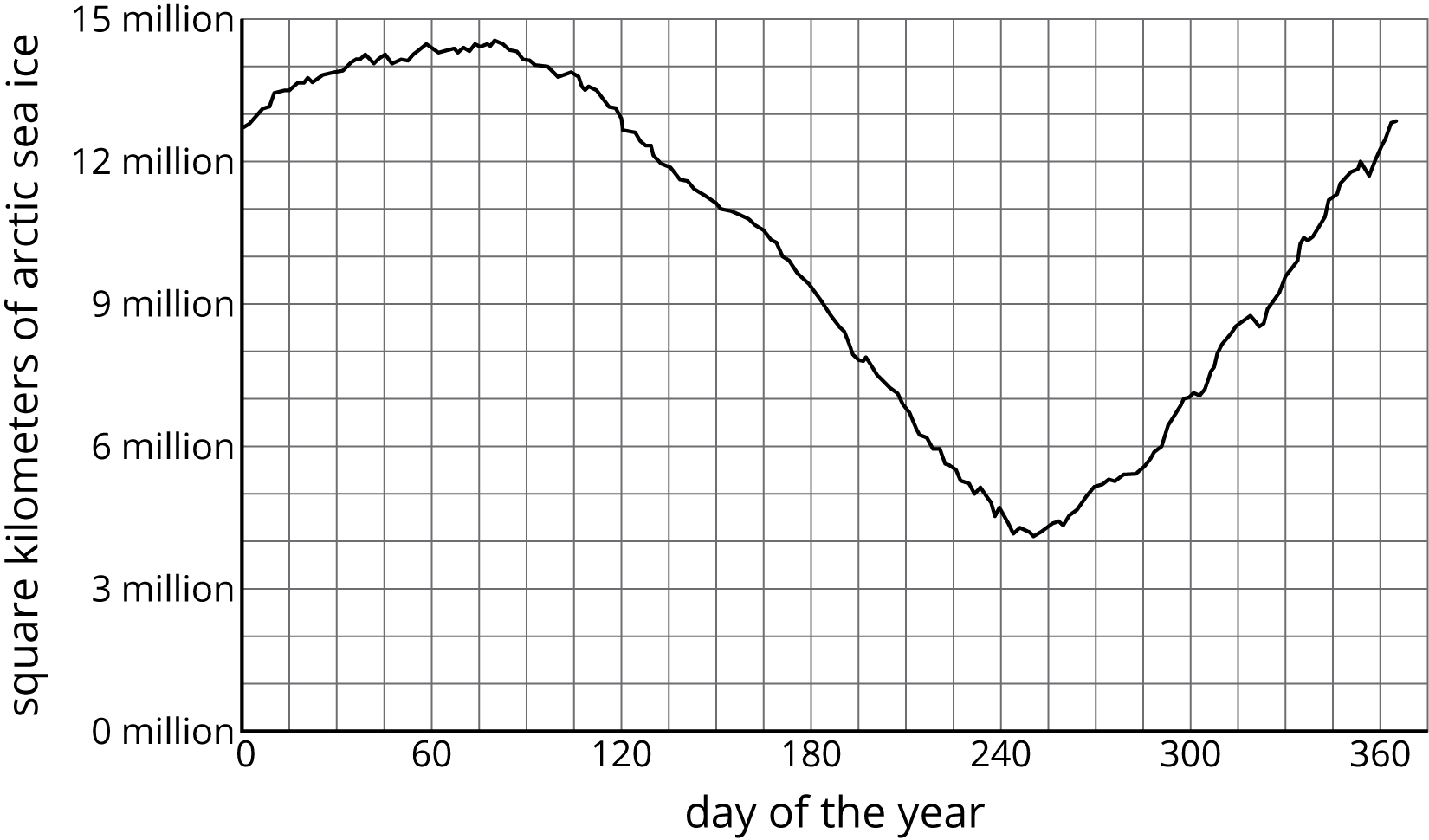Lesson 3
Rational and Irrational Numbers
Problem 1
Decide whether each number in this list is rational or irrational.
\(\displaystyle \frac {\text{-}13}{3}, \text{ }0.1234, \text{ }\sqrt{37}, \text{ -} 77, \text{ -} \sqrt{100}, \text{ -} \sqrt{12}\)
Solution
For access, consult one of our IM Certified Partners.
Problem 2
Which value is an exact solution of the equation \(m^2=14\)?
7
\(\sqrt{14}\)
3.74
\(\sqrt{3.74}\)
Solution
For access, consult one of our IM Certified Partners.
Problem 3
A square has vertices \((0,0), (5,2), (3,7)\), and \((\text-2,5)\). Which of these statements is true?
The square’s side length is 5.
The square’s side length is between 5 and 6.
The square’s side length is between 6 and 7.
The square’s side length is 7.
Solution
For access, consult one of our IM Certified Partners.
(From Unit 8, Lesson 2.)Problem 4
Rewrite each expression in an equivalent form that uses a single exponent.
- \((10^2)^{\text-3}\)
- \((3^{\text-3})^2\)
- \(3^{\text-5} \boldcdot 4^{\text-5}\)
-
\(2^5 \boldcdot 3^{\text-5}\)
Solution
For access, consult one of our IM Certified Partners.
(From Unit 7, Lesson 8.)Problem 5
The graph represents the area of arctic sea ice in square kilometers as a function of the day of the year in 2016.

- Give an approximate interval of days when the area of arctic sea ice was decreasing.
- On which days was the area of arctic sea ice 12 million square kilometers?
Solution
For access, consult one of our IM Certified Partners.
(From Unit 6, Lesson 5.)Problem 6
The high school is hosting an event for seniors but will also allow some juniors to attend. The principal approved the event for 200 students and decided the number of juniors should be 25% of the number of seniors. How many juniors will be allowed to attend? If you get stuck, try writing two equations that each represent the number of juniors and seniors at the event.
Solution
For access, consult one of our IM Certified Partners.
(From Unit 5, Lesson 15.)